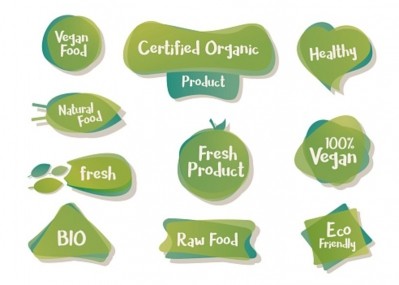China Focus: Yeyo's Tmall launch, Chinese dietary spending trends, local cultivated meat developments and more feature in our round-up

China snacking premiumisation: Nation’s first coconut yoghurt firm highlights Tmall launch as major brand building opportunity
China’s first plant-based coconut yoghurt brand Yeyo has highlighted the importance of novelty, premiumisation and brand building in capturing the holy grail of middle-class consumers in the country after successfully launching its first flagship store on Tmall.
According to Christiana Zhu, Co-Founder and CEO of the firm behind Yeyo which is Marvelous Foods, the Tmall flagship store is particularly important as it is a key opportunity for brand building, which is crucial when it comes to capturing the attention of rising middle class consumers.
“The plant-based market in China is right on the tip of a wave and there is massive potential due to the rising middle class and the [advent of] COVID-19, where people want to eat healthier,” Zhu told FoodNavigator-Asia.
Chinese household spending on fruits, dairy and fish grows at a faster pace than meat and poultry
The average Chinese household spend on fruits, dairy and fish is growing at a faster rate than meat and poultry, according to a new report documenting China’s shifting dietary spending habits over two decades.
By 2025, meat and poultry spending is expected to decrease to 21.9%, vegetables to 18.5%, while fruits (13.6%), dairy (12.5%), and fish (11.6%) will see an increase.
According to Jun Ying Ng, consumer analyst at Fitch Solutions, meat and poultry were already a key staple in the Chinese diet back in 2006, but with a rise in disposable income, consumers wanted to diversify their food palate by introducing other foods.
“More expensive seafood products were not traditionally part of the average Chinese diet but have seen higher levels of consumption,” Ng told FoodNavigator-Asia.
‘Follow, not lead’: China likely to be world’s largest cultivated meat consumer – but long, challenging journey ahead
China looks likely to be the world’s largest consumer market of cultivated meat due its population size and government support, but a long, arduous journey lies ahead before this becomes a reality, according to an industry expert.
It is a well-known fact that China’s immense population means that it is a major meat consuming country now and will continue to be in the future, bringing along struggles to meet local meat demands - prompting the government’s openness to cultivated meat.
“[China] suffers from food instability [with its] meat supply highly vulnerable to diseases, [as has been seen] with COVID-19 which is only the latest in many food-related diseases to hit it, from SARS to ASF which made pork prices soar 70% back in 2017,” investment firm Brinc’s Senior Advisor Mattan Lurie told the audience at the recent Cellular Agriculture: Asia Summit 2021.
Ageing opportunity: Hong Kong’s Senior Deli targets vast care home populations with products for dysphagia sufferers
Hong Kong start-up Senior Deli is targeting care homes in Hong Kong and China with its range of food products for people suffering from dysphagia.
Dysphagia is a swallowing or chewing difficulty which affects around 30% of elderly. People with dysphagia have problems eating, limiting their food options, consequently affecting their appetite, and may lead to malnutrition.
Senior Deli has developed products for people with dysphagia including a food and drink thickener, food softener, food gellant, pre-packaged soft meals, and whey protein to help these people maintain a balance diet.
‘No innovation, no future’: Yili says digital technology a key driver for aggressive NPD strategy
China dairy giant Yili has highlighted the use of digital technology all through its supply chain as a key factor for its new product development, having aggressively expanded its dairy portfolio in the past year.
Yili recently announced what it dubbed the ‘Innovation Trilogy’, stressing that it would be placing added focus on digital transformation, integrating resources to build an innovation system, and driving product innovation with technological R&D.
In line with this, digital technologies have been applied to ‘all procedures and operations from breeding to product consumption’ within the firm so as to create a ‘truly future-oriented digital organization’, according to Yili Group Assistant President Dr Yun Zhanyou.
“[One major area of focus is] to empower innovative products with digital technology – for example Yili’s NOC (Nature Of Cheerfulness) ice cream which caused an online sensation [and] is very sought after,” Dr Yun told FoodNavigator-Asia.












